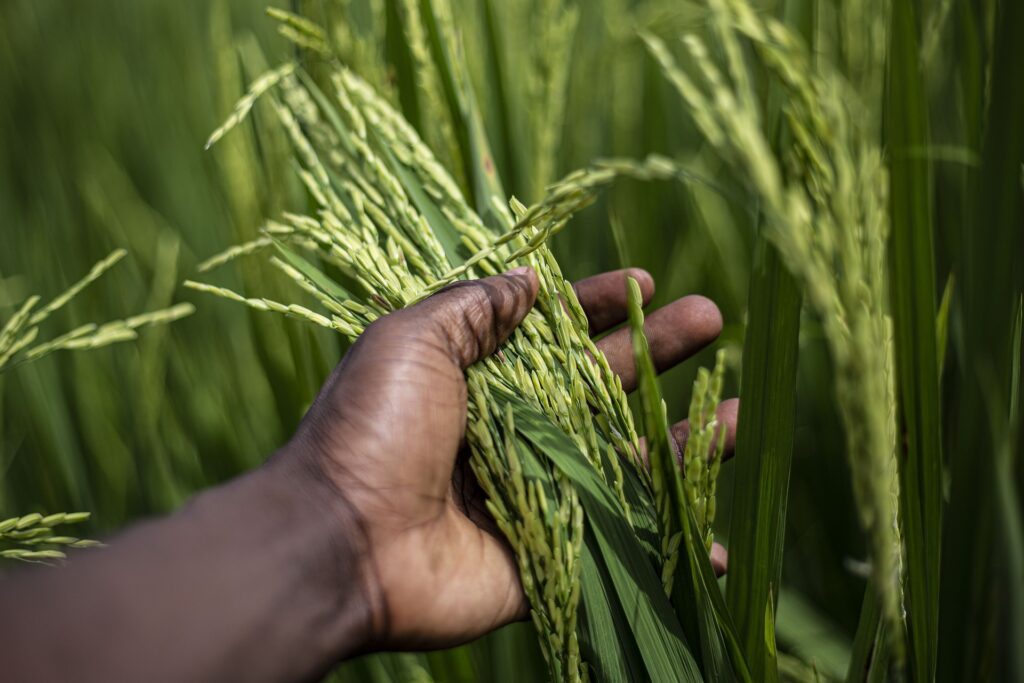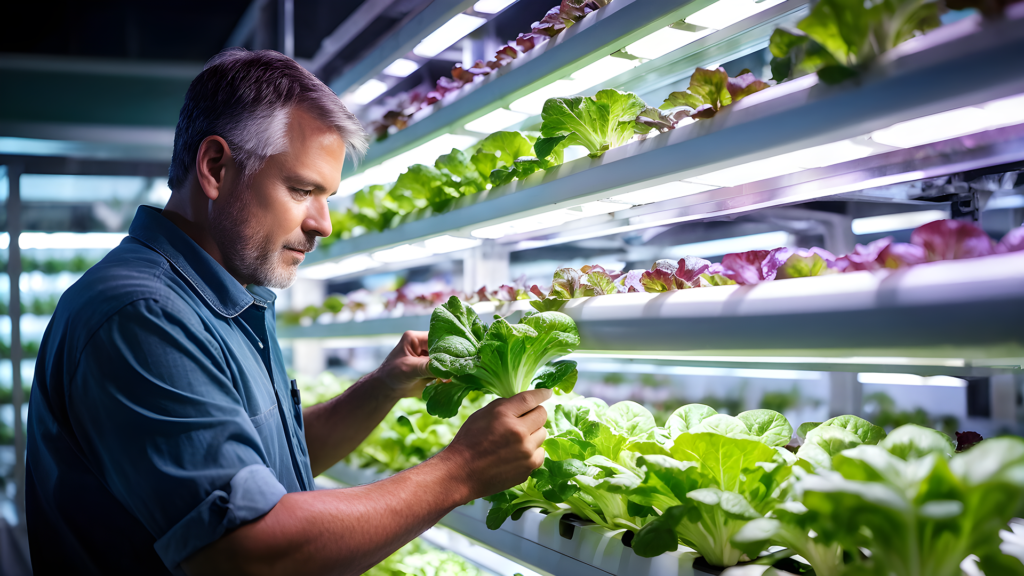Table of Contents

Introduction
Definition of Organic Farming-Organic farming is a method of agriculture that relies on natural processes and materials to cultivate crops and raise livestock. It excludes synthetic chemicals, such as pesticides and fertilizers, and genetically modified organisms (GMOs). Instead, it focuses on maintaining ecological balance and promoting biodiversity. The organic approach views farming as an integrated system, where the health of the soil, plants, animals, and humans is interconnected.
Purpose of the Blog-This blog aims to provide an in-depth understanding of organic farming principles and practices. By exploring these aspects, readers will gain insights into why organic farming is considered a more sustainable and holistic approach compared to conventional methods.
Principles of Organic Farming
Health-The principle of health in organic farming is multifaceted. It prioritizes the health of soil, plants, animals, and ultimately, humans. Healthy soil is the foundation of a thriving organic farm. It’s achieved through practices like composting and the use of organic matter to enhance soil fertility. Healthy plants, grown in nutrient-rich soil, are more resilient to pests and diseases. This, in turn, leads to healthier animals and humans, as organic farming minimizes exposure to harmful chemicals and promotes better nutritional quality of produce. (Organic Farming Principles)
Ecology-Ecology in organic farming emphasizes working with natural systems rather than against them. Organic farms often practice crop rotation, which helps maintain soil fertility and reduces pest and disease pressures. Biodiversity is another critical component, as diverse plant and animal species support a balanced ecosystem. Organic farming also includes practices like conserving water, reducing soil erosion, and protecting natural habitats, which contribute to a more resilient and sustainable environment. (Organic Farming Principles)
Fairness-Fairness in organic farming pertains to social and economic equity. This principle advocates for fair treatment of farm workers, fair prices for consumers, and fair trade practices. Organic farming often involves smaller-scale operations that support local economies and promote community well-being. It also emphasizes transparency and ethical practices in the food supply chain, ensuring that all stakeholders are treated justly. (Organic Farming Principles)
Care-The principle of care underscores the responsible stewardship of resources. Organic farmers aim to minimize their environmental impact by reducing pollution and conserving natural resources. This involves careful management of inputs and outputs, avoiding practices that could harm the environment, and adopting methods that enhance the sustainability of farming operations.
Key Practices in Organic Farming
Soil Management-Soil management is a cornerstone of organic farming. Healthy soil is achieved through several practices:
Organic Matter and Compost: Composting organic waste returns nutrients to the soil, improving its structure and fertility. Organic matter also helps retain moisture and supports beneficial microorganisms. (Organic Farming Principles)
Crop Rotation: This practice involves alternating different crops in a specific sequence over time. It helps break pest and disease cycles, improves soil structure, and reduces the need for synthetic inputs.
Green Manure and Cover Crops: Green manures are crops grown specifically to be incorporated into the soil to enhance its fertility. Cover crops protect the soil from erosion and help fix nitrogen, reducing the need for synthetic fertilizers. (Organic Farming Principles)
Pest and Disease Control-Managing pests and diseases organically requires a holistic approach:
Integrated Pest Management (IPM): IPM combines biological, physical, and cultural controls to manage pests. It includes practices like using natural predators, traps, and barriers to keep pests at bay. (Organic Farming Principles)
Organic Pesticides: When needed, organic pesticides made from natural sources are used. These include neem oil, insecticidal soaps, and plant extracts. (Organic Farming Principles)
Beneficial Insects and Companion Planting: Beneficial insects, such as ladybugs and lacewings, help control pest populations. Companion planting involves growing plants together that can help deter pests or enhance growth. (Organic Farming Principles)
Crop Management-Effective crop management ensures high yields and quality:
Variety Selection: Choosing crop varieties that are well-suited to local conditions and resistant to pests and diseases can improve productivity and reduce reliance on chemicals.
Planting Techniques: Techniques such as proper spacing, planting depth, and timing can enhance plant health and yield. (Organic Farming Principles)
Harvesting and Post-Harvest Handling: Organic farms emphasize careful harvesting methods and post-harvest handling to maintain the quality and safety of produce. (Organic Farming Principles)
Animal Husbandry-In organic animal husbandry, animal welfare is a priority:
Humane Treatment of Animals: Organic standards require animals to be raised in conditions that allow for natural behaviors. This includes access to outdoor areas and appropriate housing.
Organic Feed and Grazing: Animals are fed organic feed free from synthetic additives and GMOs. Grazing practices are also encouraged to improve animal health and soil fertility. (Organic Farming Principles)
Disease Management: Organic farms use preventive measures and natural remedies to manage animal health, avoiding the routine use of antibiotics and growth hormones. (Organic Farming Principles)


Certification and Standards
Certification Bodies-Organic certification ensures that farming practices meet established standards. Major certification organizations include:
USDA Organic: The United States Department of Agriculture (USDA) provides certification based on national organic standards. Certified organic products must meet specific criteria, including no synthetic pesticides or GMOs. (Organic Farming Principles)
EU Organic: The European Union (EU) has its own set of organic standards and certification processes, focusing on sustainable practices and environmental protection. (Organic Farming Principles)
Certification Process and Requirements
Obtaining organic certification involves several steps:
Application and Inspection: Farmers must apply for certification and undergo an inspection of their farming practices, facilities, and records. (Organic Farming Principles)
Compliance with Standards: They must demonstrate adherence to organic standards, including those related to soil management, pest control, and animal welfare.
Certification and Renewal: Upon successful inspection, farmers receive certification, which must be renewed periodically. Ongoing compliance is monitored through regular inspections and audits.
Differences Between Organic and Conventional Standards-Organic standards differ from conventional ones primarily in the prohibition of synthetic chemicals and GMOs. Organic farming practices focus on environmental sustainability, animal welfare, and natural processes, whereas conventional farming may rely on synthetic inputs and intensive practices.


Benefits of Organic Farming
Environmental Benefits-
Organic farming offers several environmental advantages:
Reduced Chemical Runoff: By avoiding synthetic pesticides and fertilizers, organic farms reduce the risk of chemical runoff into waterways, which can harm aquatic ecosystems.
Increased Biodiversity: Organic farms often support a diverse range of plant and animal species, contributing to healthier ecosystems and improved resilience.
Health Benefits
Organic farming can contribute to better health outcomes:
Reduced Exposure to Synthetic Chemicals: Organic produce is free from synthetic pesticides and fertilizers, reducing the risk of exposure to harmful chemicals.
Nutritional Value: Some studies suggest that organic produce may have higher levels of certain nutrients and antioxidants, although results can vary.
Economic and Social Benefits
Organic farming supports local economies and communities:
Market Demand and Opportunities: The growing demand for organic products provides opportunities for farmers and businesses. Organic farming can also command higher prices, benefiting farmers economically.
Community Impact and Local Economies: Organic farms often engage with local communities and contribute to local economies by providing jobs and supporting local businesses.
Challenges in Organic Farming
Economic Challenges
Organic farming faces several economic hurdles:
Costs of Certification and Inputs: Obtaining and maintaining organic certification can be costly. Additionally, organic inputs and practices may be more expensive than conventional alternatives.
Market Fluctuations: Organic markets can be volatile, with prices fluctuating based on supply and demand. Farmers may face financial challenges due to market instability.
Management Challenges
Organic farmers encounter various management issues:
Pest and Disease Management: Organic methods for managing pests and diseases can be less predictable and may require more effort compared to conventional methods.
Soil Fertility Maintenance: Maintaining soil fertility without synthetic inputs requires careful management and can be more labor-intensive.
Scaling and Accessibility
Scaling up organic farming can be challenging:
Feasibility for Large-Scale Production: Organic farming practices may be more suited to smaller-scale operations, and scaling up can pose logistical and financial difficulties.
Access to Resources and Education: Farmers transitioning to organic methods may need access to resources, education, and support to successfully implement and manage organic practices.
Future of Organic Farming
Trends and Innovations
The future of organic farming is shaped by several trends:
Advances in Technology and Practices: Innovations in organic farming techniques and technologies, such as precision agriculture and improved soil management practices, are enhancing productivity and sustainability.
Growing Consumer Interest: Increasing consumer awareness and demand for organic products are driving growth in the organic sector. This trend is likely to continue as more people seek healthier and environmentally friendly options.
Policy and Support
Supportive policies and programs play a crucial role in the future of organic farming:
Government Policies and Support Programs: Governments can provide incentives, subsidies, and support programs to encourage organic farming practices and make them more accessible to farmers.
Advocacy and Community Initiatives: Advocacy groups and community initiatives can raise awareness, provide education, and support the growth of organic farming through various programs and partnerships.


Conclusion
Summary of Key Points-Organic farming is grounded in principles of health, ecology, fairness, and care. Its practices, such as soil management, pest control, and humane animal husbandry, aim to create a sustainable and ethical agricultural system. The benefits of organic farming include environmental protection, health improvements, and economic opportunities, though challenges such as cost and management persist.